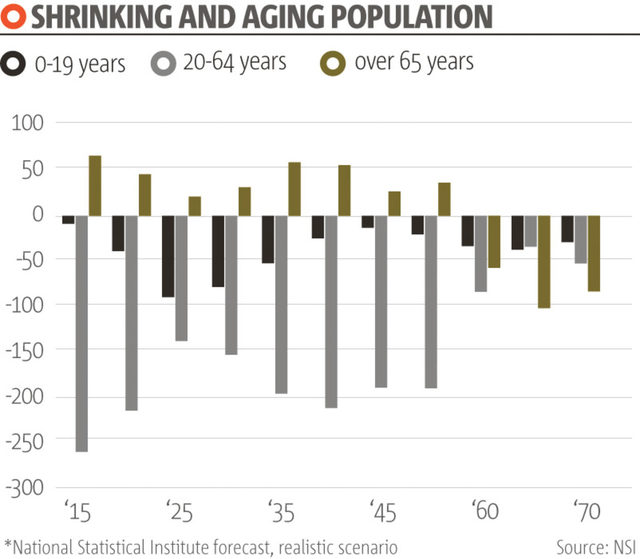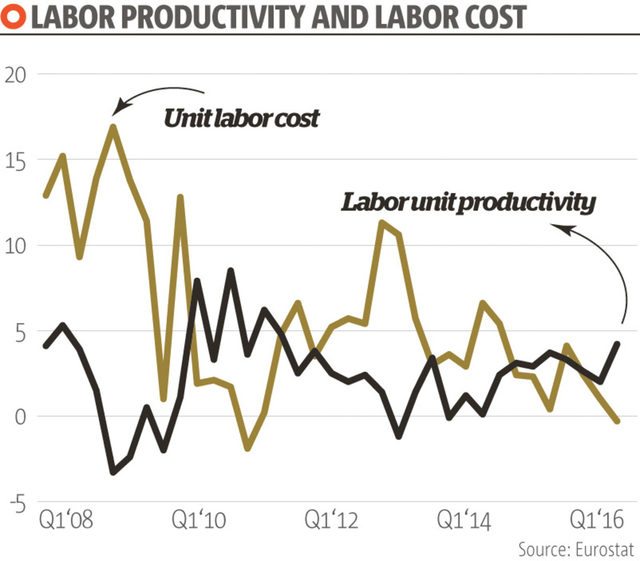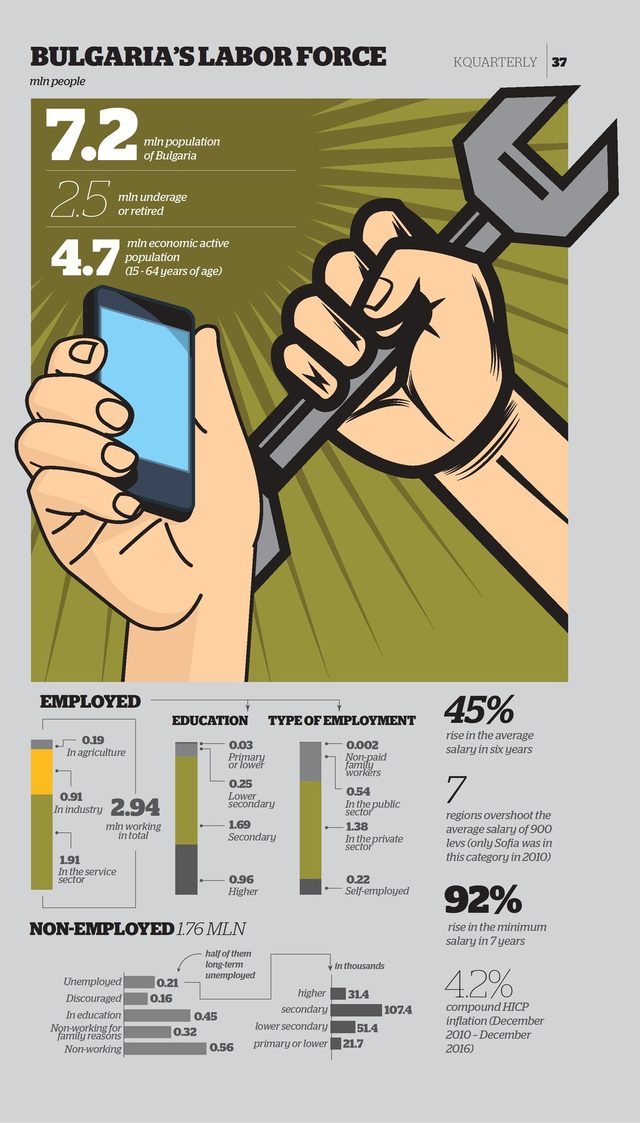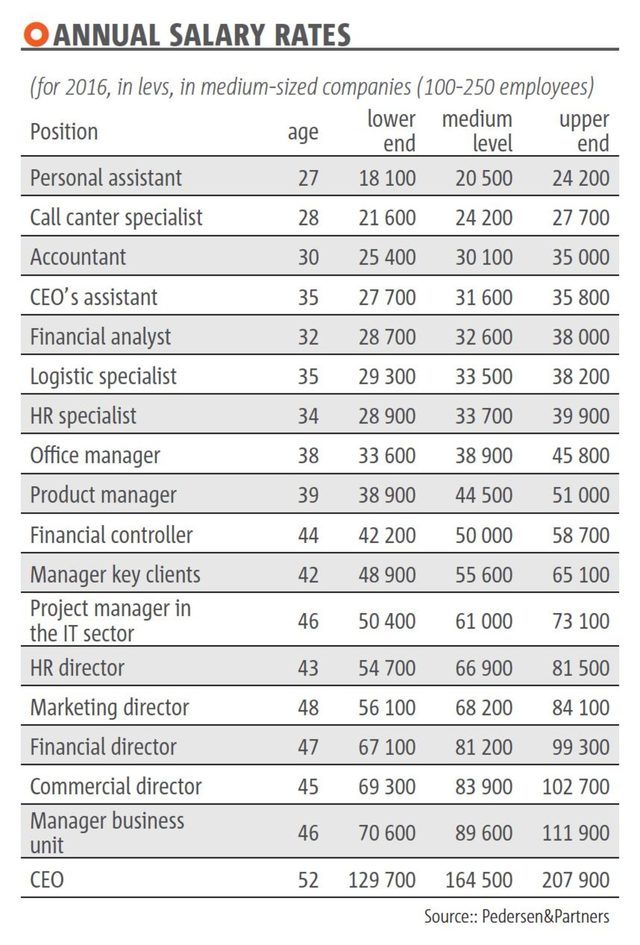The most common problem any employer in Bulgaria will share, including people from a wide range of industries, be it construction business or education, is that they cannot find people to hire. At the same time, while some other EU countries are struggling with high unemployment rates, Bulgaria's statistics in that department are slightly different and some might say quite positive: in the first quarter of 2017, unemployment was 6.9%, while a year earlier it was 8.6%.
Consequently, while unemployment is going down, labor costs and salaries respectively are going up. But the labor force cannot respond to the economic challenges in the country and the needs of incoming or already present companies. Even if a municipality starts to attract investors and hopes for a boost in its economy, soon after that all of them face the same fate: lack of people to hire.
Labor shortage
It was around 2015 when the labor market started to stir, and the need for people has been growing ever since. According to human resources experts, the hunger for employees has reached the critical levels of 2007 when the labor market was strong. However, since then, Bulgaria has lost half a million of its population, two thirds of which in working age.


There are several key reasons for the scarcity of workforce. On the one hand, emigration is a significant phenomenon not only in Bulgaria, but also across Eastern Europe. According to a report by the International Monetary Fund, almost 20 million people have left Eastern Europe in the last 25 years, which is approximately 5.5% of its overall population in 1990. Eight out of ten people moved to Western Europe and their level of education is in principle higher than the medium for their countries of origin. "Because of the significant share of educated migrants, this is likely to have benefited the host countries in the European Union, but the labor force shrinks the gross domestic product of the countries of origin, influencing the age and education of migrants," the document said.
Not only does Bulgaria lose valuable members of its labor force to the much more attractive Western fellow member states of the EU, for instance, but it also has a problem with education. On a global scale, the need for new skills and competencies is rapidly changing. In such an environment, the ability of employees to retrain and adapt to the new rules of the labor market, but also to compete with machines, is becoming a key factor. However, the Bulgarian education system is not yet equipped to prepare students for this new challenge.
The positive news is that the business itself is taking up an active role in the preparation of students for employment. Of course, it can't achieve any significant progress without government involvement. Veneta Stoilova, HR Manager Global Operations at Sensata Technologies Bulgaria said at a recent education conference organized by Capital newspaper that the Ministry of Education has to support the efforts of schools and businesses. Peter Sharkov, who manages the youth initiatives at Telerik Academy, believes that the problem with the lack of human resources in the IT sector can be easily resolved if there is financing and motivated teachers.
The first signs of the looming problems caused by the shrinking labor force can be seen in the decrease of occupied job positions. National Statistical Institute (NSI) data shows that in the first quarter of 2016 they were 2,220,108, while in the last quarter of the year they fell to 2,212,437. This will certainly hinder the growth prospects of the Bulgarian economy.
Labor cost rising
One of the main effects of the growing demand on the labor force market is, logically, an increase in salaries. At the end of last year, the average gross salary in the country exceeded the psychological limit of 1000 leva, marking an annual increase of about 8%, according to NSI data. According to Yavor Alexiev from the Institute for Market Economic, this tendency will continue in 2017. "It is certain that we will observe an increase in labor costs of about 8-9% this year as well," he says.

The IT sector in Varna, the third biggest city in Bulgaria, is a good example of this phenomenon. According to the National Statistical Institute, the number of people working in IT firms has grown from 2124 in 2011 to 3215 by the end of 2015. At the same time, the average gross salary has increased from 943 to 1255 leva. Companies there know they have to compete with a lot of other IT firms in Sofia, for instance, so the salary is their main weapon.
A major factor for the rise in salaries is the deficit of certain skills or the demand for a large number of employees in certain sectors, says Maria Temelkova, manager at Manpower Bulgaria. "There are employers, who believe it is enough for the company to be a known brand with a good history, but this is no longer the case. There are organizations, which had come with very ambitious plans for growth, but are just at a third of those plans because of that kind of strategy", Temelkova claims. The competition for employees is strong between companies with a similar profile and the obvious way to "steal" them is more money. During 2016, for instance, a large company with a new factory opening offered another big manufacturer's employees' salaries that were higher by least 50% and entered a price war for the most valuable resource - the human one.
Alexiev points out that higher pay can be felt a lot stronger in some sectors, and it depends whether the sector is export-orientated or works for the local market (where the growth of minimum salary is a factor). "For example, restaurant business and processing industry are sectors with low added value. An increase in labor costs there will be much more tangible than in other industries with higher added value", he adds.
Overall, the main issue is that not much is being done in Bulgaria to solve these problems. Countries like Poland and Estonia have started to take successful measures for increasing their labor force and enriching its skills. Possible practices can involve providing dual secondary education, training and hiring workers from underprivileged minorities and attracting people from neighboring towns and villages with high levels of unemployment. But for now there is no consistency, nor clear support from the government. Until a coherent plan is drafted, the problem will deepen and the private sector will have to fight for its causes mainly alone.

The most common problem any employer in Bulgaria will share, including people from a wide range of industries, be it construction business or education, is that they cannot find people to hire. At the same time, while some other EU countries are struggling with high unemployment rates, Bulgaria's statistics in that department are slightly different and some might say quite positive: in the first quarter of 2017, unemployment was 6.9%, while a year earlier it was 8.6%.
Consequently, while unemployment is going down, labor costs and salaries respectively are going up. But the labor force cannot respond to the economic challenges in the country and the needs of incoming or already present companies. Even if a municipality starts to attract investors and hopes for a boost in its economy, soon after that all of them face the same fate: lack of people to hire.












